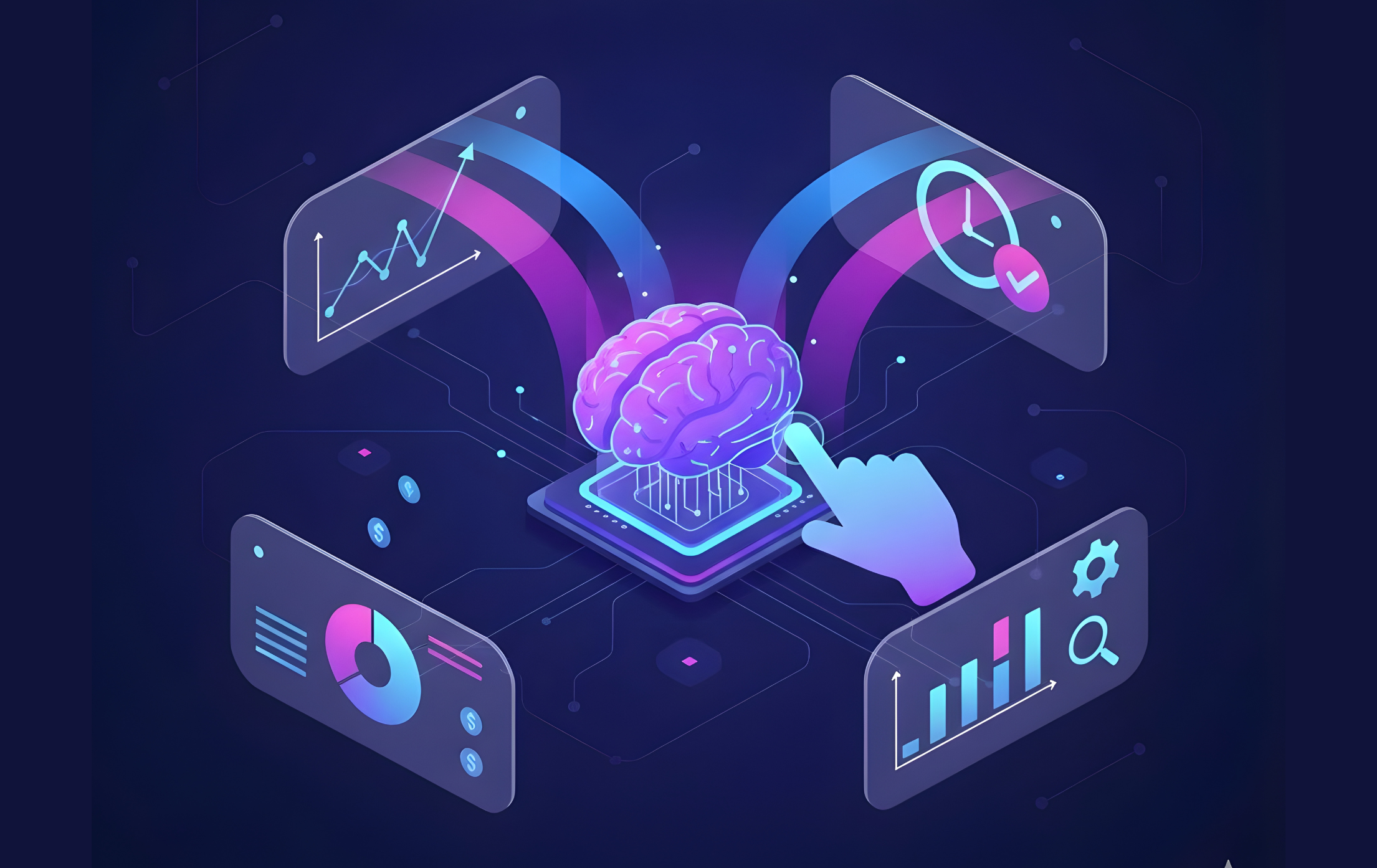Businesses today operate in an environment where spending happens fast—across teams, branches, cards, wallets, vendors, and digital channels. Waiting for month-end reports or manual spreadsheet updates leaves leadership blind to what is happening right now. That’s where real-time expense analytics powered by AI dashboards creates a complete transformation.
Instead of drowning in manual reports, companies can now track every rupee spent, detect exceptions immediately, and make decisions based on live data. This shift doesn’t just improve visibility—it empowers smarter financial control, better forecasting, and faster response to overspending.
Let’s explore how AI dashboards are revolutionizing real-time expense analytics.
Understanding real-time expense analytics
Real-time expense analytics refers to instant tracking, processing, and visualization of all organizational expenses using automated, AI-enhanced systems. It provides:
- Live dashboards
- Instant notifications
- Automated categorization
- Real-time insights into budgets, categories & departments
Instead of waiting days or weeks, finance teams and leadership understand spend the moment it occurs.
Why traditional reporting is no longer enough
Traditional expense reports involve:
- Manual spreadsheet updates
- Consolidation of receipts
- Email approvals
- Delayed entries into accounting software
These outdated workflows create:
- Slow reporting
- High error rates
- Zero real-time visibility
- Poor spending control
Modern teams need instant insights—not end-of-month surprises.
The shift from spreadsheets to AI-powered dashboards
Instant insights vs delayed monthly reporting
AI-driven dashboards show transactions the moment they occur—from travel expenses to vendor payments.
Automated vs manual data compilation
AI removes:
- Manual categorisation
- Human reconciliation
- Manual report creation
Everything is automated and updated live.
Key components of real-time expense analytics
Live expense tracking
Every transaction—card swipe, UPI payment, claim submission—hits the dashboard immediately.
Department & category-level insights
See how marketing, sales, operations, or manufacturing spend against their budgets.
Policy monitoring & exception alerts
AI flags:
- Overspending
- Duplicate claims
- Fraud risks
- Violations
Predictive forecasting with AI
AI examines past patterns to predict:
- Future spend
- Seasonal trends
- Budget needs
- Cost risks
How AI dashboard transformation improves decision-making
Faster financial visibility
Leaders don’t wait for reports—they see everything live.
Accurate budgeting & forecasting
With real-time tracking, budgets stay on course.
Reduced manual reporting load
Finance teams avoid hours of monthly reconciliation and Excel-based reporting.
Core features of modern AI-driven analytics dashboards
Automated data aggregation
The system pulls data from:
- Corporate cards
- Wallets
- Vendor payments
- Reimbursements
- ERP
- Accounting software
AI-powered anomaly detection
AI flags abnormal patterns—unexpected spikes, duplicates, irregular vendors.
Visualization tools for spend optimization
Dashboards include:
- Graphs
- Heatmaps
- Trend lines
- Category charts
For easier decision-making.
Benefits of real-time expense analytics for organizations
Deeper financial control
Teams know exactly where money is going, when, and why.
Faster month-end closure
Reconciliation becomes 3× faster with automated data syncing.
Higher compliance & audit readiness
Every expense is stored digitally with timestamps and category validation.
Use cases across industries
E-commerce & D2C
Track ad spend, logistics, COD charges, marketplace fees instantly.
Manufacturing & distribution
Manage plant expenses, raw material invoices, petty cash, and vendor bills.
Healthcare & services
Monitor cross-branch spend in real time and maintain audit readiness.
Implementing AI dashboard transformation for expense analytics
Connect your accounting system
Ensure seamless integration with Tally, SAP, QuickBooks, or Zoho.
Enable automated categorisation
AI categorizes transactions instantly using rules, amounts, vendors, and patterns.
Configure alerts, budgets & rules
Finance teams can set:
- Limits
- Threshold alerts
- Department budgets
- Policy checks
Faqs about real-time expense analytics
1. What is real-time expense analytics?
It is the ability to track, analyze, and visualize spend instantly through AI-powered dashboards.
2. Why is it better than traditional reports?
Because it reduces delays, improves accuracy, and enhances decision-making.
3. How does AI help?
AI categorizes expenses, flags anomalies, and provides predictive forecasting.
4. Can small businesses use real-time analytics?
Yes. Even small teams benefit from instant visibility and automated reporting.
5. Does it reduce manual work?
Absolutely. It eliminates data entry, reconciliation, and report creation.
6. Do AI dashboards integrate with ERP systems?
Modern platforms connect seamlessly with accounting, banking, and ERP tools.
Conclusion: transform finance with AI-driven real-time visibility
Real-time expense analytics is no longer a luxury—it’s the future of modern finance. AI-driven dashboards replace spreadsheets with instant visibility, smarter insights, and automated controls. Companies that adopt this transformation gain stronger financial discipline and the agility needed to scale sustainably.
With live analytics, automated alerts, and predictive forecasts, businesses can stop reacting to expenses—and start strategically managing them.





